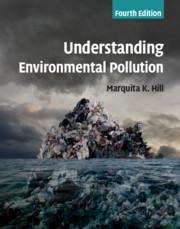Description
Understanding Environmental Pollution (4th Ed., Revised edition)
Author: Hill Marquita K.
Thoroughly updated new edition of this undergraduate textbook examines environmental pollution from our homes to the global environment.
Language: English
Approximative price 67.54 €
In Print (Delivery period: 14 days).
Add to cart
Publication date: 07-2020
466 p. · 21.9x27.5 cm · Paperback
466 p. · 21.9x27.5 cm · Paperback
Description
/li>Contents
/li>Biography
/li>
This undergraduate textbook examines environmental pollution ranging from our homes to the global environment. Completely updated and with over 50% new and rewritten material, this new edition assesses the international scope of pollution, including water, climate change, acidification, energy, solid and hazardous waste, persistent chemicals, and pesticides. The pollutants of current major concern are examined, including plastics and electronic waste. Both the impacts and the sources of pollution are addressed, as well as governmental, corporate, and personal responsibility for pollution. Pollution prevention is emphasized throughout, but students will come to see that prevention is not enough. The text moves on to examine a circular economy with closed-loop systems, where by-products are reused, wastes become raw materials, water is recycled, and energy is recovered from waste energy. Understanding Environmental Pollution engages students with the idea that humanity holds the tools to confronting the daunting pollution issues by considering a circular economy.
Preface; Acknowledgements; List of abbreviations and acronyms; 1. Understanding pollution; 2. Reducing pollution to reduce risk; 3. Chemical toxicity; 4. Chemical exposures and risk assessment; 5. Ambient air pollution; 6. Acid deposition; 7. Global warming and ocean acidification; 8. Energy and pollution; 9. Stratospheric ozone depletion; 10. Water pollution; 11. Drinking water pollution; 12. Solid waste; 13. Hazardous waste; 14. Persistent, bioaccumulative, and toxic chemicals; 15. Metals; 16. Pesticides; 17. Indoor air pollution; 18. Zero waste, zero emissions; Appendix. Chemistry – basic concepts; Index.
Marquita K. Hill holds a Ph.D. in comparative biochemistry from the University of California, Davis. She was assistant and then associate professor in the biochemistry department at Virginia Tech, Blacksburg. Later, at the University of Maine's Department of Chemical Engineering, she conducted research funded by the US Department of Energy and the US Environmental Protection Agency. Then, after educating herself as an environmental scientist, she taught courses in environmental pollution, which led to the text Understanding Environmental Pollution. She was co-founder of the Green Campus Consortium of Maine, an organization working toward sustainable environmental management in Maine's higher-education institutions. For nine years she served on an advisory committee for International Paper's mill in Skowhegan, Maine. During those same years she was a visiting scholar at the Harvard School of Public Health.
© 2024 LAVOISIER S.A.S.

